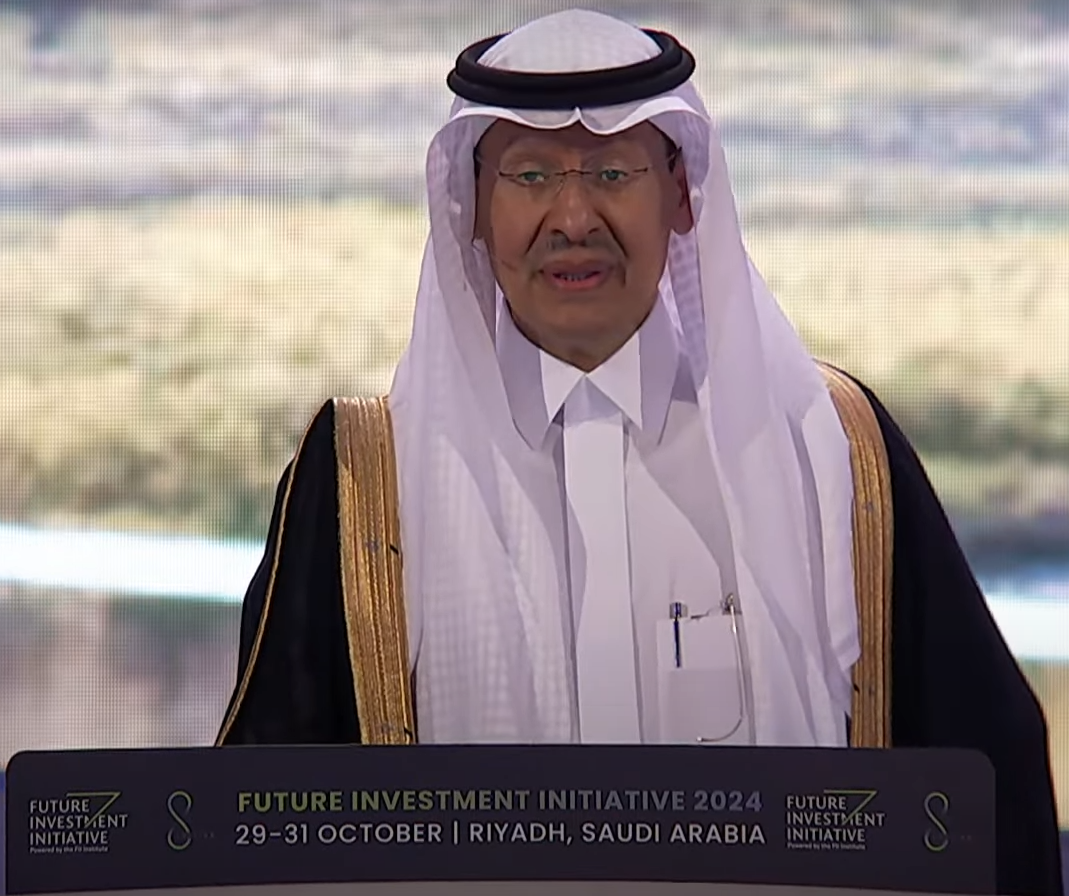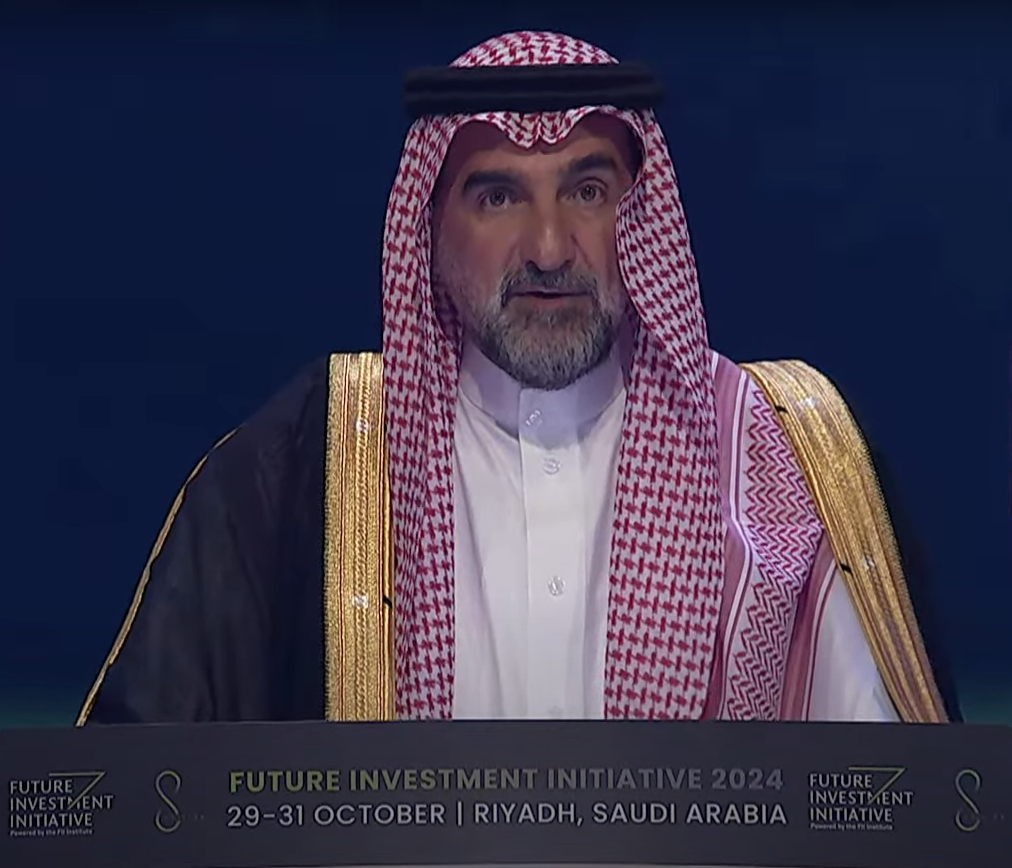
Minister of Energy of Saudi Arabia Prince Abdulaziz bin Salman Al Saud delivers a speech at the 8th Future Investment Initiative (FII) in Riyadh, Saudi capital, on Oct 29. SCREEN GRAB / CHINA DAILY
Saudi Arabia is undergoing a significant transition in the energy sector towards a cleaner economy, as highlighted by participants at the 8th Future Investment Initiative (FII) held from Oct 29 to 31 in Riyadh.
This year's FII is themed Infinite Horizons: Investing Today, Shaping Tomorrow and focuses on global investments aimed at addressing major issues such as artificial intelligence, robotics, education, energy, space, finance, healthcare, and sustainability.
During the conference, Prince Abdulaziz bin Salman Al Saud, minister of energy of Saudi Arabia, stated that Saudi Arabia is evolving from a reliance on oil to embracing all forms of energy, including low-carbon products. This shift represents a comprehensive economic diversification strategy. He emphasized that the country is moving from a linear carbon economy to a circular carbon economy, rapidly deploying renewable energy sources at scale.
In addition to having the largest grid in the Middle East and North African region, Saudi Arabia is reinforcing and expanding its grid to reliably integrate renewables and meet the accelerated demand growth, the minister stated. Furthermore, Saudi Arabia is transitioning from being an importer to an exporter of manufactured and engineered products, making substantial investments in electricity infrastructure to support its green growth initiatives, the minister added.
Yasir Al-Rumayyan, chairman of the FII Institute and governor of the Public Investment Fund of Saudi Arabia, said during the opening ceremony of the 8th FCC on Tuesday that FII has facilitated over $125 billion in deals over seven years. He projected that by 2030, economies including Saudi Arabia will play a significant role, particularly in infrastructure and technology.
Addressing the topic of sustainable growth, Al-Rumayyan pointed out that economic and social challenges, along with political tensions, hindered progress towards sustainability. He stressed the importance of focusing not only on short-term gains but also on long-term strategies that tackle global challenges. The interconnection between economic, social and environmental factors is essential, as the world is rich with potential, he said. For the energy transition to truly succeed both public and private sectors must collaborate, ensuring that policy and investment act as catalysts for change, he added.

Yasir Al-Rumayyan, chairman of the Future Investment Initiative Institute, makes opening remarks at the 8th Future Investment Initiative (FII) on Oct 29 in Riyadh, capital of Saudi Arabia. SCREEN GRAB / CHINA DAILY
Al-Rumayyan emphasized that the transition to a clean economy will require long-term efforts, with the goal of empowering future generations. However, he acknowledged that rising living costs remain a significant concern. He encouraged leaders and global investors to seize the opportunity to contribute to a sustainable economy that benefits all of humanity.
When asked about Hong Kong's distinctive advantages in a panel discussion during the FCC, Laura Cha, senior advisor to the board, Hong Kong Exchanges and Clearing Limited (HKEX), said that under the "one country, two systems" principle, HKSAR has played an increasingly important role. Hong Kong offers a simple tax system that has attracted global investors. Hong Kong serves as a crucial financing hub, supporting the development of cutting-edge technologies of the mainland, such as mobile payment that is leading the way across the world.
Cha concluded that support from the motherland coupled with a favourable business environment and Hong Kong's role in financing technological innovations positioned the city as a world-class hub for global growth.
The 8th FII promises to be a melting pot of innovative ideas, bringing together global leaders, entrepreneurs, political leaders, media and decision-makers in finance, AI, sustainability, energy, geoeconomics, space and beyond. By focusing on the theme of "Infinite Horizons", this year's conference challenges attendees to think beyond conventional limits and explore investment opportunities that can bridge current challenges with future possibilities.
A variety of external engagements is scheduled throughout the week for FII Institute members, invited delegates, and strategic partners. Investment Day of the 8th FII will take place on Oct 31. This event is exclusively curated for the world's most influential venture capitalists, institutional investors, innovative startups, accelerators and founder-focused organizations.